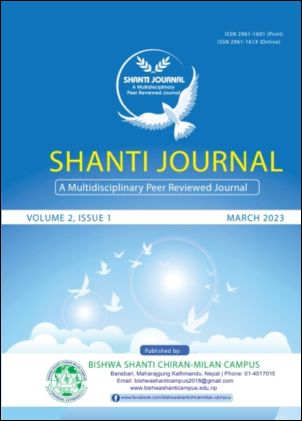Facebook and Twitter as Platforms for Human Good: A Case of Egypt Uprising, 2011
DOI:
https://doi.org/10.3126/shantij.v2i1.53728Keywords:
Social media, Egypt Uprising, power, oppression, resistance, mobilizationAbstract
Through wider and rapid dissemination of information, social media sites (Facebook and Twitter in this article) influence the psychology of the users, making them ready for the collective action. This article analyses the role played by Facebook and Twitter in bringing about political change in Egypt during the Egyptian Uprising of 2011. Drawing insights from social media studies and Foucauldian discourse of power, this article exposes the tussle between the autocratic Egyptian government led by the then president Hosni Mubarak and Egyptian citizens and scrutinizes the horizontal connectivity and dissemination of information, citizen journalism, pervasive nature of power, and multiple resistance sites. It concludes that in materializing their aspirations of right, liberation, and justice along with the economic, social, and political revamp, Egyptian civilians took recourse in digital technologies and freed themselves from thirty-years long dictatorship of Mubarak.
Downloads
Downloads
Published
How to Cite
Issue
Section
License
Copyright (c) 2023 Copyright 2023 © The Author(s). The publisher may reuse published articles with prior permission of the concerned author(s). The work is licensed a Creative Commons Attribution-NonCommercial 4.0 International License . www.nepjol.info/index.php/shantij

This work is licensed under a Creative Commons Attribution-NonCommercial 4.0 International License.
This license enables reusers to distribute, remix, adapt, and build upon the material in any medium or format for noncommercial purposes only, and only so long as attribution is given to the creator.




